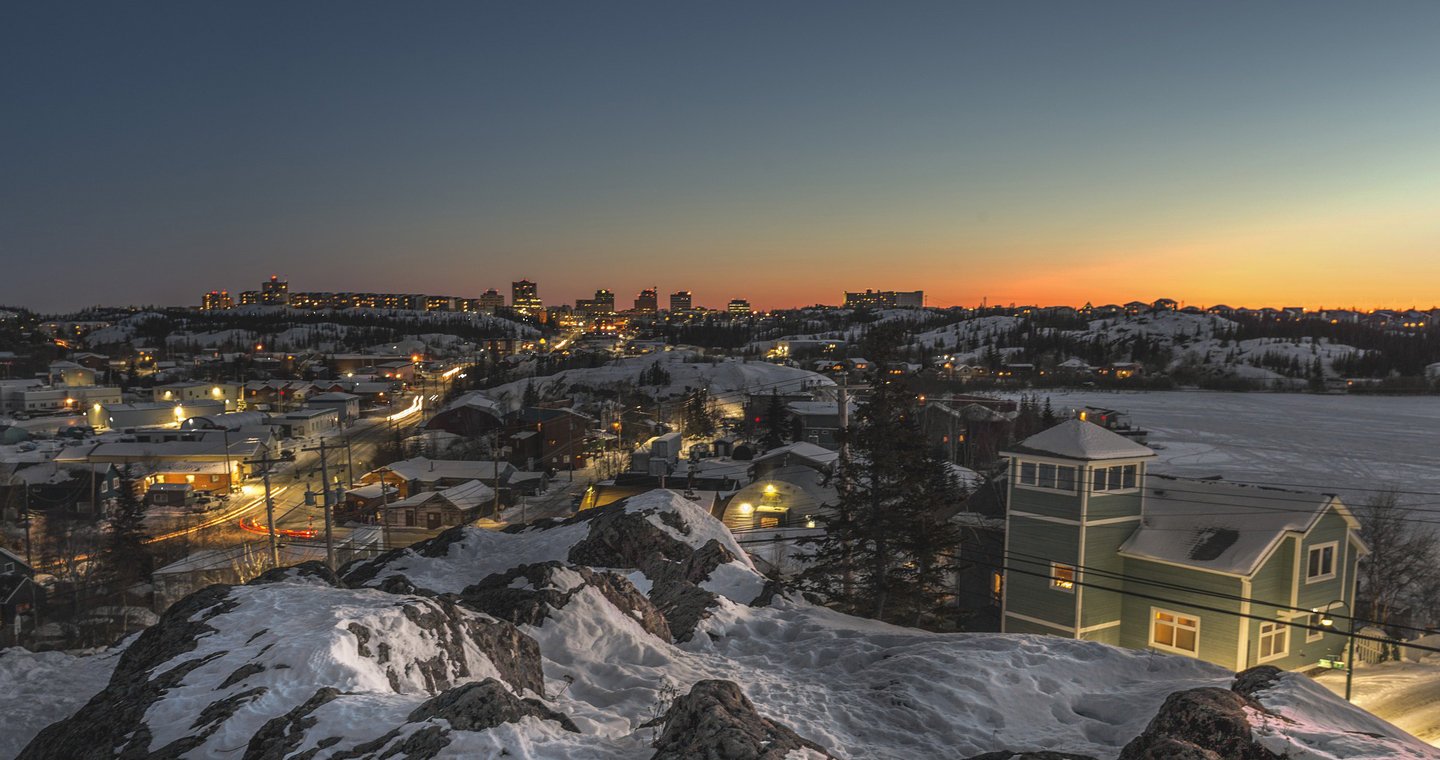The Northern Birthwork Collective is an emerging initiative on the MakeWay shared platform, based in Yellowknife, Northwest Territories. With the interconnectedness of climate justice, economic rights, and civil rights becoming more apparent with each passing day, The Collective’s co-founders Sabrina Flack and Degha Scott saw a need for more culturally-safe, gender-inclusive birthcare for the local community. Now, having gathered together a steering committee of Northern changemakers, they’re doing something about it.
A Collective is born
Sabrina is a certified doula: a trained companion who supports individuals through significant experiences, like childbirth. Doulas have existed in many cultures around the world for thousands of years, providing non-medical care for expecting parents throughout pregnancy, including miscarriage and termination, during childbirth and postpartum, offering information, physical and emotional support, and advocacy during the process. They work in collaboration with doctors and midwives to amplify the support network that surrounds expecting parents through a transformative, often overwhelming time.
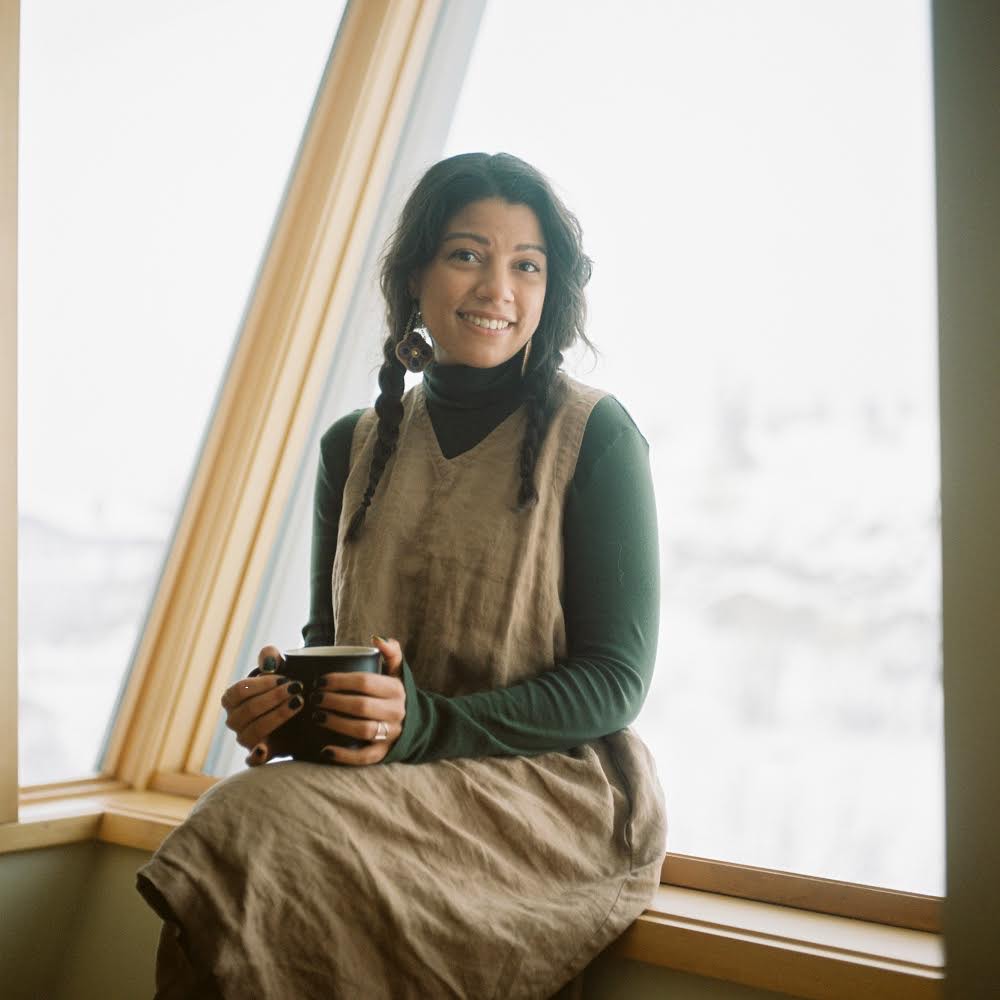
In Canada, doulas fall outside of the formal healthcare infrastructure. Expecting parents wanting to utilize doula support services must seek out a practicing doula and pay for their services. Sabrina says that there are a fair number of folks in the North who want doulas but can’t afford them. “I offer pro-bono services and sliding scale pricing wherever I can,” she says.
“As a Mixed-Race Black Woman and a birthworker, a huge driving force for me in this work is to create more justice and equality in the world of birth and wellness for BIPOC folks.” – Sabrina Flack, Project Director, Northern Birthwork Collective
In June 2020, the protests sparked in the wake of George Floyd’s murder by Minneapolis police sparked critical conversations about the pervasiveness of racism across time, space, and cultures. Sabrina gathered with folks in the local birthcare and holistic health space on her front lawn to talk about this systemic issue within their sector, particularly surrounding reproductive, pre-, and post-natal care.
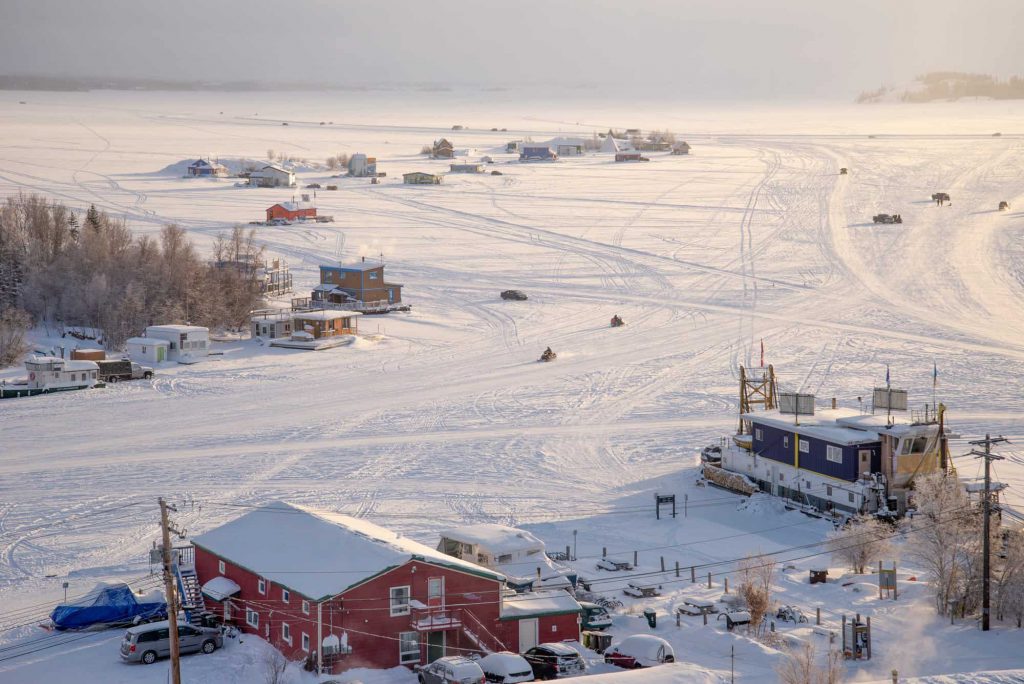
“There are not a lot of culturally-safe or gender-inclusive resources in the North for people to access as they experience expecting, delivering, and caring for their newborns,” says Sabrina. Many Northerners have to leave their communities to give birth in settings outside of their local and cultural supports.
“I invited anyone to my front lawn who was interested or involved with birthcare here in Yellowknife, and we talked about what we wished existed here in the Northwest Territories,” says Sabrina.
The healthcare system can be harmful to queer and racialized people as they give birth, but that harm can be eased with trauma-informed doula and midwifery services.
“We all agreed that we would love to see a holistic birthcare program in the North that is supported by the government, so that doulas are paid [rather than private small businesses needing to charge clients for their services], and families who opt for this route could have access to supportive, culturally-safe doula care. We realized the best thing to do would be to start creating this ourselves.”
Causes come together
In British Columbia, Vancouver’s Nesting Doula Collective says they envision a world where all pregnant and birthing people have access to the care, respect, and services they need to have positive experiences regardless of their race, religion, status, gender, sexuality, class, age, or ability. “[So] we’re not reinventing the wheel,” clarifies Sabrina. “There are some amazing doula collectives across Canada. But we are bringing something new to the Northwest Territories at a time when it’s sorely needed.”
Sabrina and The Northern Birthwork Collective team plan to address and improve the state of the maternal healthcare system in the Northwest Territories, expanding doula capacity to offer more expecting parents the opportunity for additional support before, during, and after their birth experiences. In addition, they plan to strengthen the fabric of holistic birthcare in the North by upping the level of culturally-relevant training that doulas can acquire. This includes learning Indigenous modalities, trauma-informed care, and heightened knowledge and awareness of LBGTQ2S+ and BIPOC issues.
“Everyone deserves access. It’s a human right to have support and companionship around you during your birth.” – Sabrina Flack
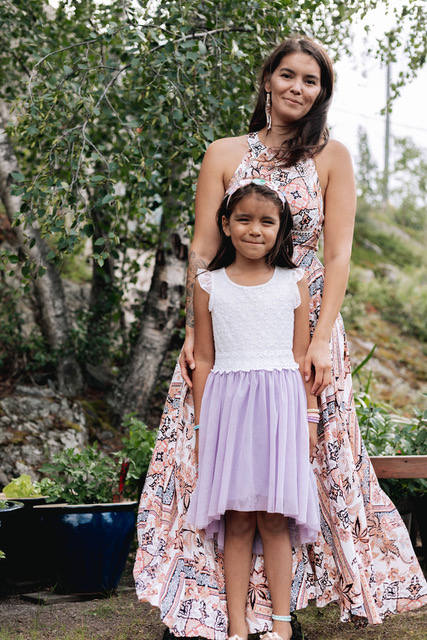
Co-founder Degha Scott is leading research and development for The Collective’s Indigenous doula training, and is looking at practices including traditional baby wearing techniques, traditional birthing ceremonies, infant sleep practices, traditional foods for postpartum healing and for maintaining a healthy pregnancy, among other modalities. Degha is a Tłı̨chǫ Dene woman studying Indigenous Governance at Yukon University, and has worked as a nurse and clinical assistant for several years. Having noticed gaps in the healthcare system that directly impact Indigenous families in the North, she is directing her focus toward the co-creation of more holistic and culturally-led birthcare.
Currently, there are just five practicing midwives in the Northwest Territories, and none of those are located in Yellowknife, a city of nearly 20,000. Expecting parents lack the availability and accessibility of options for their pre- and post-natal care, and their labour and delivery. “A lot of doulas go on to become midwives,” says Sabrina. She’s hopeful that The Collective will in time nurture doulas and inspire more Northerners to become midwives. There isn’t yet a training infrastructure in place for midwives in the North, but “you can’t wait until the system is perfect to get started,” she reflects.
Ultimately, notes Sabrina, birth is connected to everything. The experience of childbirth can be profoundly healing, and the opportunity to revitalize traditional knowledge and apply it to such a significant moment can have a ripple effect on parents and children, their families, and communities. The Northern Birthwork Collective will foster community reconnection to ancient ways of knowing and being, provide widespread access to culturally safe pre- and post-natal care, and ripple outward from family units to contribute to a more resilient Northern community on the whole.
Finding a home at MakeWay
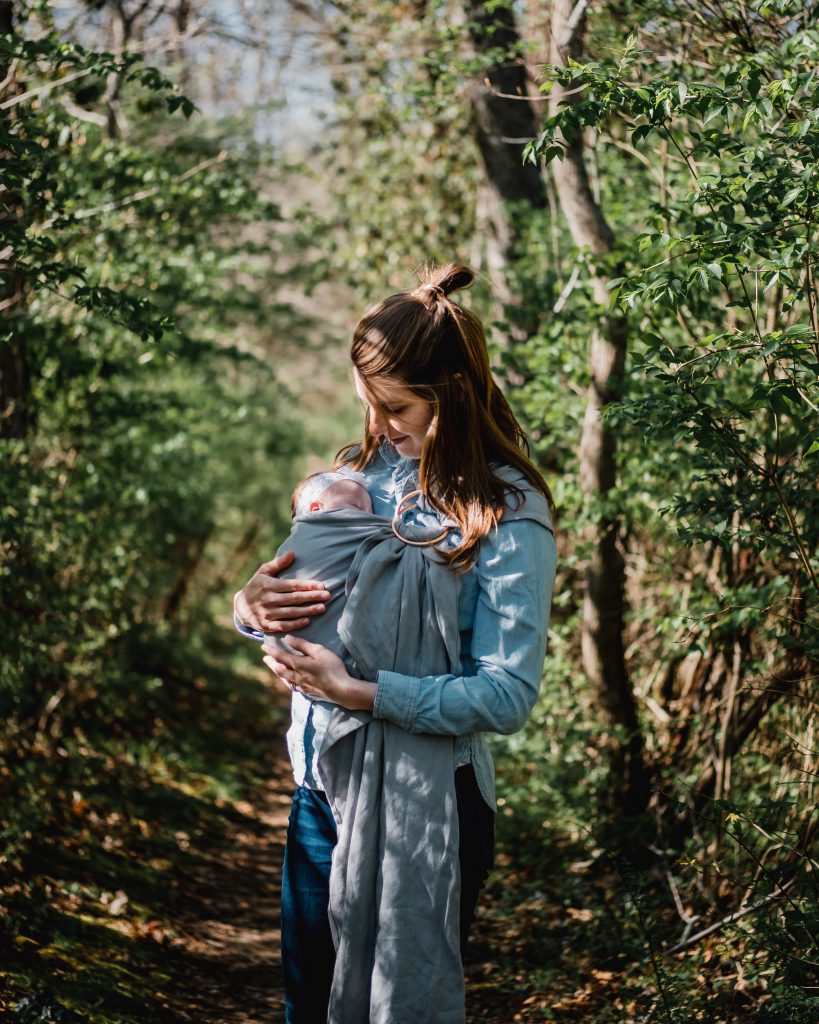
Last year, MakeWay and the Canadian Women’s Foundation partnered to develop a strategic grantmaking framework to create more opportunities for womens’ and girls’ initiatives in the Northern Territories and Inuit Nunangat. The partnership aims to amplify community-driven work to uplift women’s roles in family and community settings, break down barriers to Indigenous health and wellness, and reclaim Indigenous culture and ways of knowing and being.
“Northern women and girls are doing incredible things in their communities, even as they face challenges, they are innovators and changemakers. There’s no question: when they thrive, entire families and communities thrive,” said Paulette Senior, CEO of the Canadian Women’s Foundation, when the partnership launched in spring 2020. The Northern Birthwork Collective was a perfect fit for the grantmaking framework.
By chance, Sabrina’s partner shares an office with MakeWay’s Northern team in Yellowknife, and when her work came up in casual conversation one day, the MakeWay team thought that The Collective might find a home on the shared platform, given the clear ties between MakeWay’s Northern objectives and Sabrina’s vision for the Collective.
“I’m formally trained as a doula and a holistic nutritionist,” says Sabrina. “While I’m always learning and growing, organizational leadership is not what I’m best at. Coming to the shared platform has made this project so much more accessible, because I can focus on the work in communities, and receive operational help and support from Killulark,” (Killulark Arngna’naaq is Northern Program Specialist at MakeWay and provides operational support and charitable expertise for many projects on the shared platform, including The Collective).
Since its launch late last year, The Northern Birthwork Collective has established a robust steering committee including Inemesit Essien Graham, Mahalia Yakeleya Newmark, Johanna Tiemessen, Lane MacIntosh and Janette Batacharya, plus two Yellowknife doulas: Jess Bourassa and Melissa Stockwell. Co-founder Degha Scott is the research and development lead for the Indigenous doula training.
You can support The Northern Birthwork Collective here, and read more about them on CBC News and Cabin Radio.
